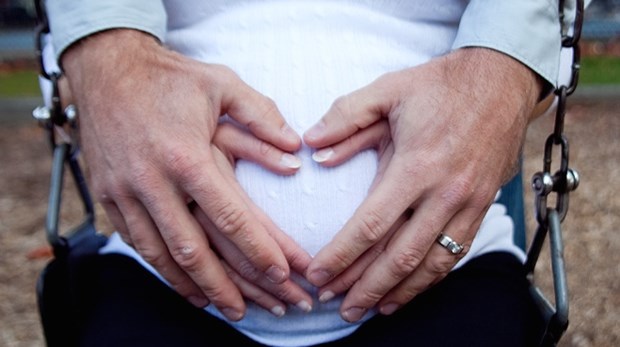
Mary Alice Teti offers the first of a handful of personal Christian perspectives on contraception here in the United States. She writes about how her Catholicism has shaped her view of marriage, and next week we will hear a diverse series of Protestant views:
Any young person who was raised in a Christian home at some point stops to ask: Do I really believe what I have been told about Jesus Christ? If the answer is yes, another question quickly follows: Now what? What does this mean about how I will live my life? If I am commanded to know love and serve God and neighbor, how will I live?
I was just beginning to ask myself these questions when I was 19 years old and a sophomore in college. At that time in my life, I was also beginning a relationship with the man who would become my husband, so we were blessed to be able to discuss these questions together. We thought, read and prayed a lot about marriage. Together we came to understand the truth about the Roman Catholic teaching on marriage, which is not, as we might have thought, a simple prohibition on contraception, but is rather a positive understanding on creation and human sexuality.
The Roman Catholic Church has traditionally held that marriage is a sacramental relationship between one man and one woman, and that sex in marriage is important, beautiful, spiritual, and for the dual purpose of uniting the spouses and allowing them to participate, with God, in the creation of new life.
When I was a teenager with a rebellious heart, I assumed, without knowing much, that the traditional teaching on marriage was anti-woman and outdated. What I have learned, as I have lived in Christian marriage, is that the truth is just the opposite. I am deeply respected, by my husband and by my Church, for my distinct personhood as a woman. My husband and I are truly equal partners in building a family together, and in the context of Christian marriage we respect and honor each other. We also grow closer to God daily by serving one another and our family.
These traditional teachings were reasserted in the document Humanae Vitae, written in 1968, at a time when many social norms about marriage and sexuality were being overthrown. At that time, the Catholic Church maintained the centuries old teaching that sex belongs in the context of marriage, and that use of chemical or barrier contraception to block the procreative aspect of sex also blocks the unitive aspect.
We got married because we were deeply in love. We wanted our marriage to be a sacrament, and for our most intimate moments to draw us closer to God and one another. We could not begin to imagine what this would mean, but we were setting out in faith and determined not to use contraception. It is not an understatement to say that this Catholic understanding of marriage has defined our lives and our Christian journey to this point.
Every couple who has this kind of marriage lives out these teachings in a personal and unique way. Children are a great gift from God, a blessing and a responsibility, and natural family planning may be used when there are serious reasons not to be open to conceiving a child. In our case, we have been abundantly blessed with children, and while we have used natural family planning for some brief spaces, we have done our best to resolve any serious issues so that we could be open again to having another baby. We learned, after the birth of our first child, that we absolutely love having children together, and that the late nights and difficulties, even bouts of serious post partum depression, have made us stronger and better as a couple and as individuals.
By the time we had four children, we also had a strong sense of a vocation to be the parents of a large family. This has been very intense at times, and our family is not like most of the other families in our suburban New Jersey community. We have to make different choices, limit outside activities somewhat, take different kinds of vacations and have different kinds of parties, but our life as a family is so rich that we absolutely would not change a thing.
We know that there are other Catholic couples who have serious reasons to avoid conception which they cannot solve, such as responsibility to care for ill children or parents, a mother who becomes seriously ill during pregnancy, or dire financial constraints. For those couples, limiting family size through NFP is a huge sacrifice, both in their sex lives and, I would think, in their desire to have more children.
There is no “right” kind of family. Every family is right if it structured according to moral teachings and as an offering to God. As the stay at home mother of seven children, some people think that I am wasting my education, or wasting my youth, and I am sometimes tempted to think the same thing, especially when the world and my children all seem to be screaming at me. When I am prayerful and attentive to the whispering of the Holy Spirit, however, I know that I am indeed using up my life, but in the very best way.
My children are blessed to have parents who have put God first by putting family first. I am doing just what I hoped when I was young and idealistic; I am offering my life to God in the service of others, I am educating young people in their own Christian identity, I am growing closer to my husband every step of the way. I am on a mission from God.

Mary Alice Teti is a graduate of Princeton University and the mother of seven children ages 2 to 13. She enjoys spending time reading, writing about family life, and teaching skiing as an adaptive snowsports instuctor.
Support our work. Subscribe to CT and get one year free.
Recent Posts

Why I Have Seven Children
Why I Have Seven Children
Why I Have Seven Children
Why I Have Seven Children














